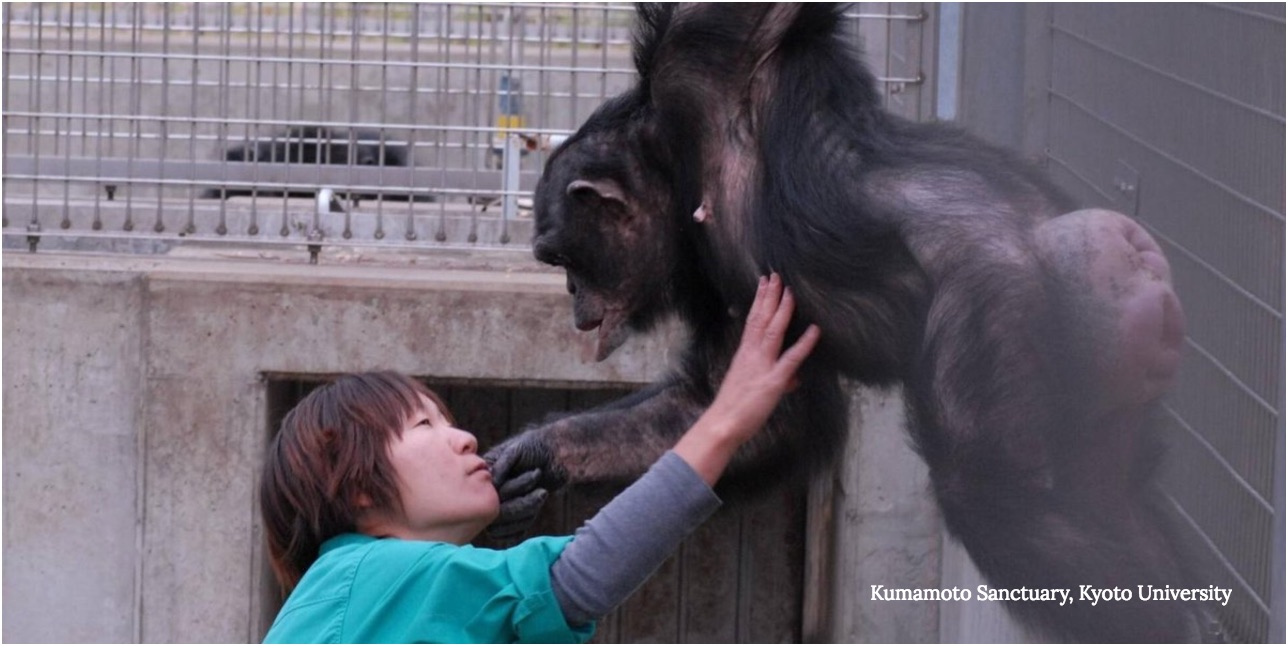'Down Syndrome' in Chimps Seen for Only the Second Time

Researchers from Japan's Kyoto University have documented just the second case in chimpanzees of a genetic disorder similar to Down syndrome in humans.
The chimp, a captive-born 24-year-old female named Kanako, has a third copy of chromosome 22, in a condition called trisomy 22. (In humans, Down syndrome is known as trisomy 21, for a third copy of chromosome 21.)
The only such prior case in the species was observed in 1969, in a chimp that did not live to be two years old.
In humans, Down syndrome can be typified by slowed growth, intellectual challenges of varying degrees and features such as crossed eyes.
Kanako, who lives at the university's Kumamoto Sanctuary, has been blind since the age of seven, following cataracts that first appeared when she was only one year old. She also has crossed eyes, thinning corneas, a congenital heart disease and underdeveloped teeth.
Researchers only learned of Kanako's unusual condition when a routine exam three years ago showed she had a heart defect. When she was found to have a "hole" in the wall between the chambers of her heart, a chromosome analysis later revealed her trisomy 22.
RELATED: 6 Shocking Things About Chimps
Sign up for the Live Science daily newsletter now
Get the world’s most fascinating discoveries delivered straight to your inbox.
While her blindness makes it tricky, and possibly unsafe, to socialize with other chimps, Kanako has made a female friend named Roman that she is allowed to see periodically. Thus far, the researchers say, the two animals get along great.
One thing that is not clear to the Kyoto University scientists is the degree to which Kanako's behavioral development might have been slowed early on.
"However, the lack of abnormalities noted in her daily caretaking before the age of one, except for neonatal inactivity and limp limbs, suggests that there was no severe retardation in her behavioral development," said Satoshi Hirata, lead scientist behind a new study on Kanako, in a statement.
The scientists also cannot peg just how often trisomy 22 might occur in chimps, though they suggest it could be similar to the occurrence rate in people.
"Given that around 500 chimpanzees have been born in captivity in Japan," offered Hirata, "the probability of this autosomal trisomy in chimpanzees may be comparable to that of trisomy 21 in humans, which occurs in up to 1 in 600 births."
Detailed findings on Kanako's condition have just been published in the journal Primates.
WATCH: Why Can't Chimpanzees Speak?
Originally published on Seeker.









